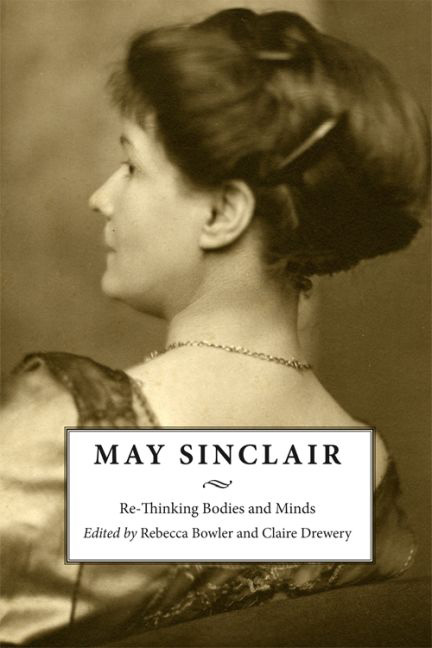Book contents
- Frontmatter
- Contents
- Acknowledgements
- Introduction: May Sinclair's Interdisciplinarity
- Part I The Abstract Intellect
- 1 ‘Dying to Live’: Remembering and Forgetting May Sinclair
- 2 Learning Greek: The Woman Artist as Autodidact in May Sinclair's Mary Olivier: A Life
- 3 Portrait of the Female Character as a Psychoanalytical Case: The Ambiguous Influence of Freud on May Sinclair's Novels
- 4 Feminism, Freedom and the Hierarchy of Happiness in the Psychological Novels of May Sinclair
- 5 Architecture, Environment and ‘Scenic Effect’ in May Sinclair's The Divine Fire
- Part II Abject Bodies
- Notes on Contributors
- Index
2 - Learning Greek: The Woman Artist as Autodidact in May Sinclair's Mary Olivier: A Life
from Part I - The Abstract Intellect
Published online by Cambridge University Press: 26 May 2017
- Frontmatter
- Contents
- Acknowledgements
- Introduction: May Sinclair's Interdisciplinarity
- Part I The Abstract Intellect
- 1 ‘Dying to Live’: Remembering and Forgetting May Sinclair
- 2 Learning Greek: The Woman Artist as Autodidact in May Sinclair's Mary Olivier: A Life
- 3 Portrait of the Female Character as a Psychoanalytical Case: The Ambiguous Influence of Freud on May Sinclair's Novels
- 4 Feminism, Freedom and the Hierarchy of Happiness in the Psychological Novels of May Sinclair
- 5 Architecture, Environment and ‘Scenic Effect’ in May Sinclair's The Divine Fire
- Part II Abject Bodies
- Notes on Contributors
- Index
Summary
May Sinclair's reimagining of the late-Victorian poet in Mary Olivier: A Life examines the obstacles facing the artist-heroine in her quest for intellectual freedom, self-definition and artistic autonomy at the turn of the century. One of the main influences guiding Mary is her desire for knowledge, and Sinclair questions the boundaries of acceptable female education in Victorian England by focusing specifically on Mary's interest in Greek studies, a traditionally masculine subject. Sinclair's extensive detailing of Mary's autodidactism as a young girl, adolescent and mature adult thoroughly examines the barriers preventing women's intellectual growth in the late nineteenth and early twentieth century, and Mary's struggle for an equal educational experience to men prefigures much of Virginia Woolf's non-fiction writing on women's education and professionalisation. Sinclair draws upon her own experiences of autodidactism and formal education at Cheltenham Ladies’ College in her Künstlerroman, and she explores how education influences not only the development of the woman artist, but how it impacts upon Mary's own understanding of her creative potential.
Sinclair portrays the portrait of the artist narrative from the protagonist's early infancy and returns to the nineteenth-century realist tradition of developmental Bildung– wherein the idea of training and preparation are considered necessary for the hero/ine. While this might superficially suggest the text revisits the more traditional themes associated with the Bildungsromaneof her male predecessors, who often align the male protagonist's self-formation within formal schooling and the public domain, Sinclair instead identifies the woman artist's struggle for creative fulfilment with the autodidact and locates much of Mary's intellectual and artistic development in the private sphere. This chapter examines how Mary challenges many of the period's patriarchal standards Concerning women's right to an education and the consequences this has on her artistic development.
Women's Education in the Nineteenth Century
In Woolf's essay ‘Two Women’ (1927), she argues that young women taught in the nineteenth century were given a ‘negative education, [one] which decree[d] not what you may do but what you may not do, that cramped and stifled’ their intellectual aspirations (419). The ideologies of separate spheres placed women in a subordinate role to men, thereby making them ‘relative’ rather than ‘autonomous beings’, and any formal education they received reflected this second-class status (Purvis 1991: 2).
- Type
- Chapter
- Information
- May SinclairRe-Thinking Bodies and Minds, pp. 39 - 58Publisher: Edinburgh University PressPrint publication year: 2017



